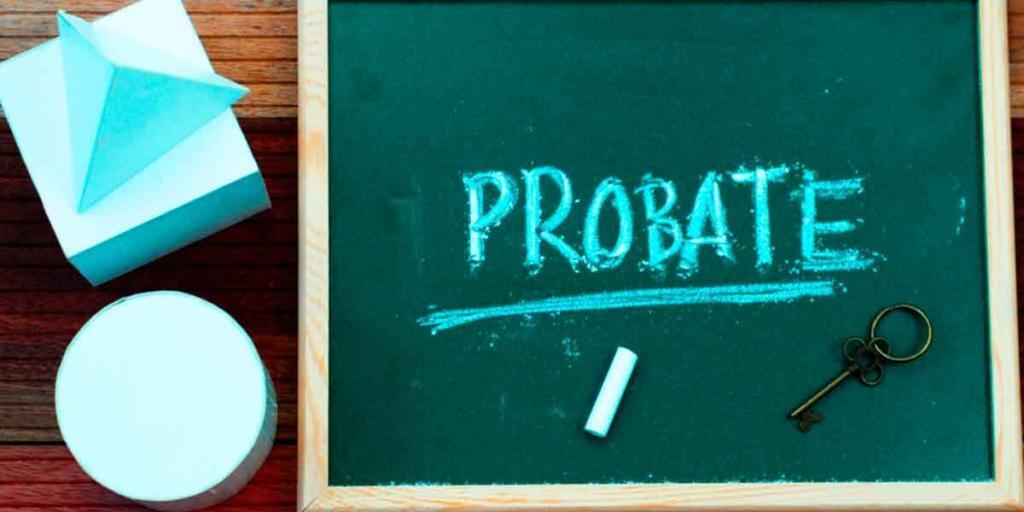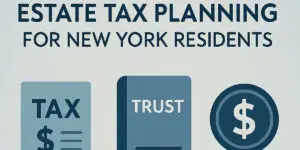Probate is the term for a legal process in which a will is reviewed to determine whether it is valid and authentic. Probate also refers to the general administering of a deceased person’s will or the estate of a deceased person without a will. Probate is a legal process that administers the distribution of a deceased person’s assets. The process is overseen by a probate court. This court has the legal authority to decide matters related to wills and estates.
During probate, the court will determine whether the will is valid. They will also appoint an executor, locate and value assets, and pay the decedent’s debts out of the estate. The residue will then be distributed to the decedent’s beneficiaries and heirs.
Types of probate
1. Letter of Entitlement
In this type of probate, the individual who passed away left assets worth $20,000 or less. They also did not leave any real estate property of any kind. In these cases, those involved do not need to attend court. They will have to send in an Affidavit of Entitlement which includes information on how they have a claim to the assets they wish to receive, and information on those assets such as bank account numbers.
2. Set Aside Estate Without Administration
This kind of probate does require a court hearing. For the hearing the court needs specific details and pricing on each owned by the deceased, a list of debts and lenders, a statement by the petitioner that they do not know of any other debts other than the ones listed, and everyone who could claim a right to the property or assets. Usually the claimants are family, but they can be business partners, friends, etc. You will also need to post a notice, notifying others of the hearing’s date, time, and possibly additional information.
3. Summary Administration
This is where things start to get complicated as the courts will need much more information than the previous 2 cases. If you are the petitioner, you will have to follow guidelines for posting notice of a hearing, you will have to obtain various kinds of information including current value of all assets, jurisdictional information and detailed description of any real estate, information on all who have a legal claim to the property, and if you are a petitioner you have to have never been convicted of a felony. You will need to follow up with the courts about the sale of the property and once it has sold you will have to file paperwork about the results of the sale and how all the assets, money and property have been distributed.
4. General Administration
In this case the value of the deceased estate is worth over $20,000. This process will be very similar to the Summary Administration, but there are more formalities and things required by the court. To protect yourself from legal issues or to get what is rightfully yours, make sure that you have experienced professionals on your side who are protecting you.
Advantages of probate.
Probate allows you the ability to close out creditors to the probate estate within a 90 day window. For comparison purposes, if an individual passes away and all of their assets are held in trusts in order to avoid probate, there is a two-year window for creditors to put in a claim on the assets to pay any outstanding debts of the deceased.
Probate may provide you with an opportunity to challenge the validity of a creditor’s claims in court. If you believe a creditor is wrongfully trying to collect on debts from the deceased, probate could afford you with the chance to prevent having to pay unnecessary debts out of the estate that you otherwise may have to accept at face value outside probate.
Probate court offers an opportunity to settle disagreements over an estate among named and potential heirs. Estate issues are sensitive and can create lifelong rifts between loved ones, so sometimes it is better to allow a neutral judge to make the final decision when there is a dispute.
Disadvantages of Probate
Probate generally takes a very long time to complete. In the State of Florida, it can take anywhere from 6 to 12 months to finalize, or perhaps even longer depending on the complexity of the estate. For those who want to quickly administer their loved one’s estate and move on, it may be advisable to avoid probate.
Probate can be a very expensive process. In Florida, you can expect probate to cost between 3-5% of the overall value of the estate up to $1 million. If the estate is worth more than $1 million, those percentages may decrease, but either way, you will likely be paying a large chunk of money to administer an estate through probate.
Since probate is handled in court, and court matters are public record, the details of one’s estate may become public knowledge if it enters into probate. Most of us do not want details about our lives and personal finances being made available to anyone who asks. Thus, the lack of privacy involved in probate can be a major drawback.
How Does Probate Work
Whether or not a person has a last will and testament in place at the time of death, any assets that do not pass directly to beneficiaries must go through the probate process. The process, in theory, is quite simple.
To probate a will or estate without a will, the probate court assigns a representative, who will gather and list the deceased’s assets, pay any outstanding debts, bills, taxes, and fees, and then distribute assets to the intended beneficiaries according to probate law. A probate attorney is often retained to help guide the representative, they are called an executor or administrator, through the probate process.
Get Help
Do you have more questions about Probate? Our attorneys are ready to give you all the help and answers you need. Call us today.
FAQs
Will probate be conducted even when a will exists?
Yes. Whether or not a person has a last will and testament in place at the time of death, any assets that do not pass directly to beneficiaries must go through the probate process. In fact, a will necessitates probate since the court has to verify the will’s validity.
Are there different types of probate?
There type of probate process executed typically depends on the total value of assets left by the decedent.
What happens during probate?
During probate, the court will determine whether the will is valid. They will also appoint an executor, locate and value assets, and pay the decedent’s debts out of the estate. The residue will then be distributed to the decedent’s beneficiaries and heirs.









